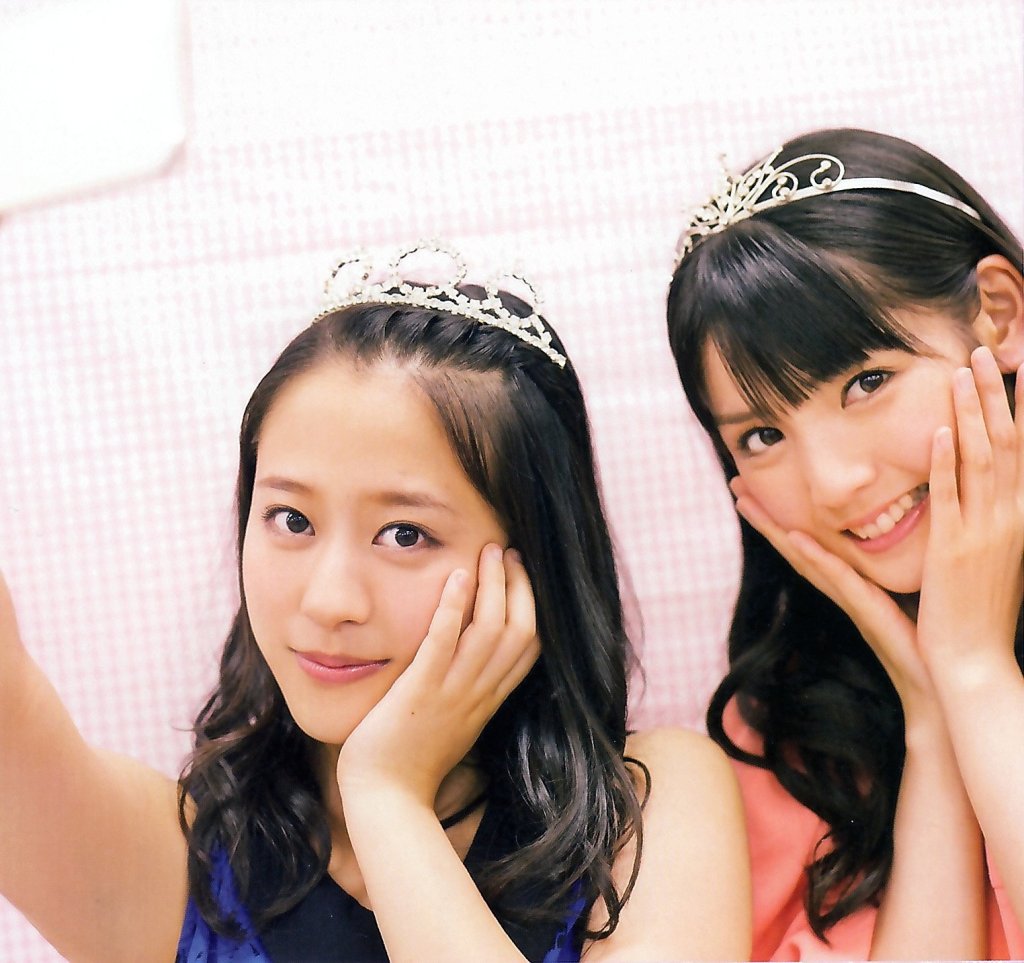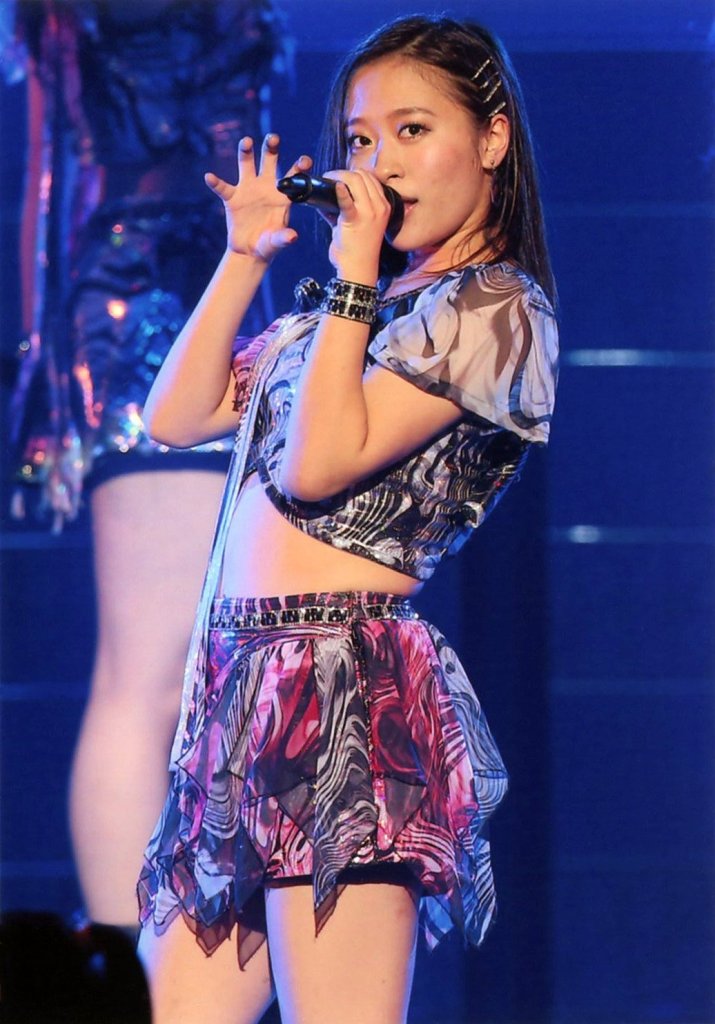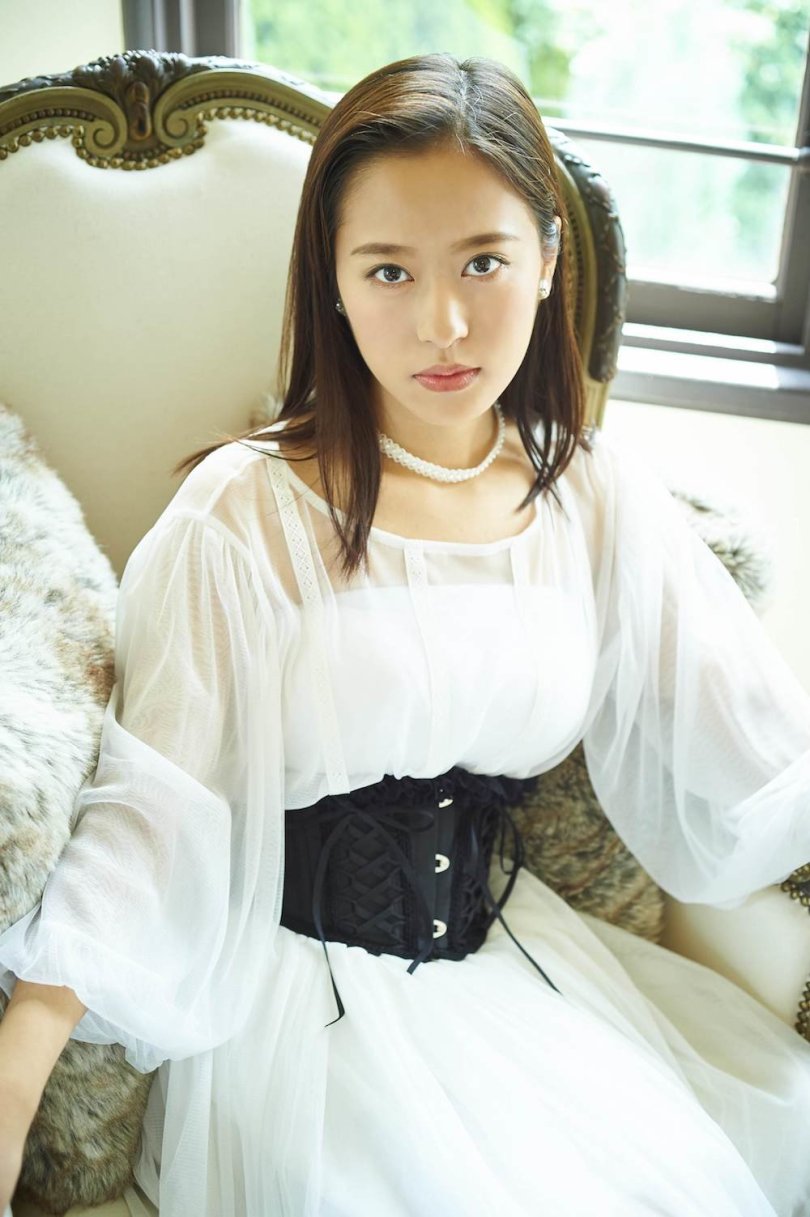This is a translation of an article that was originally published in the March 2018 issue of Top Yell.
Oda Sakura is one of Hello! Project’s top singers. We had planned to only discuss her singing, but we realized it was too superficial of a topic for her. Oda’s thoughts on idoling and Morning Musume are unbelievably deep.
Aiming for world peace: Morning Musume can achieve it
— Could you tell us exactly what sets Hello! Project apart from other idols?
Oda: The deep devotion that precedes us joining the group, which is the source of our rich history. Morning Musume was initially a group of girls who failed an audition. We’re different from groups that were formed with the intention of debuting a new exciting group. We’re rough, unpolished, and we’re girls acting boyish. This part of us hasn’t changed in the past 20 years. We’re burning so hot, we’re kind of uncool.
— So intense, you’re uncool?
Oda: Yes. Uncool. And I think that’s wonderful. Being cute is extremely important for idols, but sometimes, we’re putting our cuteness away and singing our heart out. I think the fact that we’re a girl group going so hard in an uncool way is super charming. You can relate to us: “So there are girls this intense!”
— Hello! Project members, including Morning Musume, come across as very self-aware. Is this true?
Oda: In my case, when I joined, I didn’t ask myself what was an idol. All I knew was that Michishige Sayumi’s presence was extremely strong! Michishige really, truly loved Morning Musume. She would cut down on her sleep for Morning Musume. She devoted her entire self. “I love Morning Musume” was her cause… or maybe it was love. When I looked at Michishige, I started thinking naturally that I had to really love Morning Musume too.

— You auditioned, doesn’t this mean you loved Morning Musume in the first place?
Oda: Well, the group was created before I was born. It’d be disrespectful if I were to say to fans who have been supporting it for 20 years: “Sorry, I don’t know this song, it was released before I was born.” So, to love Morning Musume properly, I needed to study the group in depth from its beginnings. As I was doing this, I feel the way I thought about Morning Musume changed.
— What do you mean?
Oda: I used to go on thinking, “Let’s smile, have fun and work hard together with love!”, but as juniors joined the group, I had to tell them when they did something bad. I couldn’t always be smiling when something bad happened because it’d be like avoiding it. If I really loved Morning Musume, I had to tell them off even if they ended up hating me. We’re not friends, you know. We don’t need to be good friends, but we should be able to depend on and respect each other. We’re a professional group, so we can’t just chat like friends while ignoring warnings from staff. That’s out of the question.
— During Morning Musume’s ASAYAN days, the members were going off at one another.
Oda: Honestly, there are still juniors who want to have fun while working, but I can’t blame them. I was like that too.
— You can’t do anything about it, really.
Oda: We talk about our dreams together, like going on a world tour, but I’m thinking we should reflect on the reason why we want to go worldwide. I feel only a few members have thought about it. Is it that we want people around us in Japan to pay attention to us and say: « Morning Musume toured all over the world? That’s impressive! »? Is it right to have such a small goal?
— Do you have bigger ambitions?
Oda: I often think about it when we’re doing concerts. Morning Musume fans are really full of love and so nice. It’s always the same in every country we visit. In other words, if more people like Morning Musume, more people will be nice, and if that happens, we could achieve world peace. The reason why I want to do a world tour is for world peace.
— That sounds like Tsunku’s worldview in his lyrics, like in Kono chikyuu no heiwa wo honki de negatterun da yo! (I’m really hoping for peace in this world!).
Oda: Exactly. (laughs) Music can cross all borders. It may be known as J-POP, but through music, you can really spread a message that you can’t through speech. Not only this, but Morning Musume has made a name for themselves overseas as Japanese idols for the past 20 years. I really do believe we, out of all people, have the power to achieve that goal. I also remember Tsunku telling us he only made music by overseas standards. We’ve come along this far, so why aren’t we doing it, then?! Well, I might be the only member who’s aiming as high as world peace. (laughs) I’m sure Michael Jackson sang with world peace in mind too.
Not for myself, but to make others happy
— Current Morning Musume are mostly popular because of the quality of their performances, but back in the Morning Coffee and LOVE Machine days, no one really cared about their dance skills.
Oda: This certainly changed a lot in the last 20 years. Basically, all the girls joining Hello! Project right now grew up watching and liking Morning Musume ’14: the formation dance era. They like Morning Musume for their formation dancing, good singing and cute looks, but in my opinion, they’re somewhat missing the point. Formation dance looks all pretty at a distance, but if you get closer, you see us looking intense as we’re panting and moving frantically in position. This intensity is what makes Morning Musume charming, wherever we go. We’re not a cool group that can vary its intensity, we’re always peaking. At our core, we haven’t changed a bit in 20 years.
— Do you feel a generation gap as the members are all over the place age and career-wise?
Oda: Younger members joined because they admired the cool Morning Musume, not the intense one, so I want to be cool too. For example, in the outro to The Peace!, we’re dancing and looking silly over and over again. It’s only right to be intense in this part of the song, even if we look “ugly”. The kids who grew up watching the cool Morning Musume, though, are doing it in a stylish way. Actually, I realized that as we were taught by Natsu Mayumi not too long ago.
— So you had Natsu Mayumi teach you something?
Oda: Yes, it was for the 20th anniversary version of Morning Coffee. I learned so much! Natsu Mayumi is a dance instructor, and the first thing she told us was that we aren’t dancers. We have to sing, we have lyrics to convey and we need to express the meaning of our songs with our whole body. Let’s say we’re touching our cheek with our hand. What are we trying to show? We need to capture the nuances in lyrics like “I’m embarrassed,” but if we were to dance in an energetic way, nuances would be lost.
— Given that Natsu Mayumi is involved in this project, it must really put you in a 20th anniversary mood.
Oda: Thanks to Natsu Mayumi’s words, I fully understand the reason why Morning Musume aren’t just cute idols. The members who were instructed by Natsu Mayumi back then expressed lyrics like “Japan’s future is, (wow wow wow wow)” (LOVE Machine) with their whole body. Do their moves look cute? Cool? Certainly not. I couldn’t have understood that just by watching the music video.
— It made you realize the importance of history.
Oda: If I had joined a group that didn’t have a long history, I would have a different point of view. Worst case scenario, maybe my goal would have been for classmates to tell me: “Hey, you were on TV yesterday.” (laughs) Still, being on TV is part of achieving world peace. You could say I’m an idol not for myself, but for other people.
— Idols don’t usually think like this! They want to sell well and be the centre of attention.
Oda: Selling well… I do think it’s for self-satisfaction after all.
— You know that, if you don’t sell well, you can’t achieve world peace.
Oda: Personally, what I want to do is to bring happiness to people who listen to our songs. It’d be nice if the world were more peaceful thanks to music. I do want us to sell well for that reason, but not for being rich and leading a carefree life… Sometimes, I stop and think about the reason why I sing. I only found the answer recently, and it was all written in Tsunku’s lyrics.
— Now I’m curious. Oda Sakura, why do you sing?
Oda: For world peace, that’s why. You can achieve world peace not only with songs like Happy Daisakusen and Be Alive, but even with heartbreak songs. There are songs that comfort people who are hurt and have thoughts like: “My life is over. I want to disappear.” Heartbreak songs can reach them at the very bottom and lift them up. That’s a happy result, and it’s the first step towards world peace. I strongly believe music exists for a reason, so I have to sing the songs we’re given properly. If I didn’t care about them because I don’t have solo parts, it’d be the end of me as a singer.
— Is this what you mean by “singing for other people”?
Oda: When we go on tour, we’re performing a similar set list every day in 30 different venues. From an outsider’s point of view, you might think performing the same songs day after day is nothing special. It couldn’t be further from the truth. The people who come and watch us are different every day. Also, as concerts are live, no performance is exactly the same. That’s why we must sing with all our heart. I learned this from Tsunku; no doubt about it. A basic element of his philosophy is that the stage is for entertaining people. Performers must also feel entertained and express their gratitude by performing properly. If you can do this the right way, everyone will take you seriously. I’m confident this way of thinking is engraved into my heart deeper than anyone else.
Technique isn’t as important as expressing
— I was sure you’d be a bit more focused on technique, but you’re actually a singer who cares about expressing feelings more than that.
Oda: It’s fine if you can’t sing well, let’s say it plainly!
— Isn’t this something you can say just because you’re a good singer?
Oda: It really isn’t! If you’re a good singer, you absorb yourself in your own singing. You sing while thinking: “I reached those high notes. My technique is great. Praise me.” This is wrong; expressing is what you should be focusing on! To tell you the truth, I was very much focused on technique for some time myself, which is why I know it isn’t right.

— Why did you change your focus?
Oda: Someone told me directly that I sang like I was asking them to listen to my singing, and that’s all they could hear. To be honest, I really was singing while thinking: “I want you to listen to my singing.” My perspective changed when Tsunku stepped down as producer of Hello! Project. Tsunku himself couldn’t sing anymore, so Morning Musume had to convey his words. There was no way around it.
— He’s not involved with Hello! Project anymore?
Oda: And what’s more, the number of younger Hello! Project members who never worked with Tsunku keeps increasing. He only remains as Morning Musume’s sound producer. That’s why I believe we, Morning Musume, have to sing in Tsunku’s stead. Our voice is only a musical instrument. The type of instrument isn’t very important, but the performance we do with it is. Our voice is just a means, and if we’re absorbing ourselves in it, things can sound weird.
— That’s such a wonderful way of seeing things. Still, I didn’t expect you to say “it’s fine if you can’t sing well.” I thought you were still set on improving.
Oda: Yes, I do want to improve my singing skills, but it doesn’t have the same meaning now. I wish I didn’t have to worry about unnecessary things, like when my pitch is a bit off and stuff. If had perfect intonation and rhythm, then I could focus solely on expressing. I should get good at singing to build a foundation for that. Tsunku is very particular about rhythm and I truly understand why, too.
— Really? Could you explain?
Oda: It’s about the ensemble. Musicians playing in an orchestra follow the conductor. It’s the same thing for us; what we do is making music, you know. Music is a combination of drums, bass, guitars, piano, and other instruments. Of course, vocals are an instrument as well. If you were to let your guitar roar or play your cello freely without paying attention to the conductor, it would sound incredibly unpleasant. In our case, if we want people to be mesmerized by our songs and avoid that, all the members have to keep the same rhythm.
— Amazing! I don’t think anyone can formulate Tsunku’s thoughts as well as you do.
Oda: Japanese people are used to a 4-beat rhythm, but music has to follow a 16-beat rhythm to be accepted by world standards. We’re far from world peace now. (laughs) Anyway, I consider it our duty to convey our songs properly. I’ll put all my heart into it.
